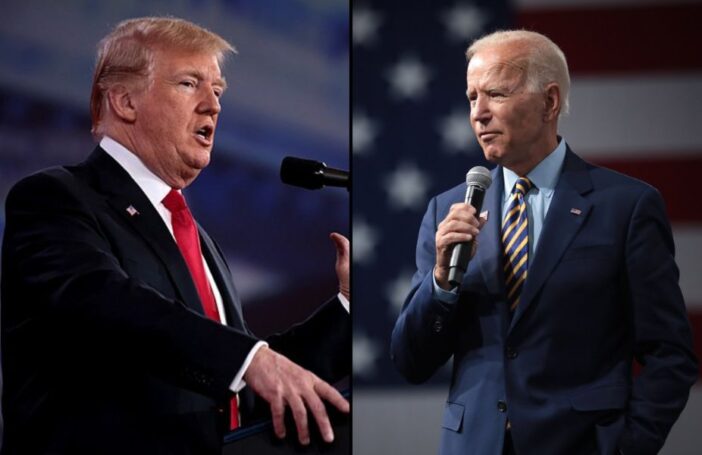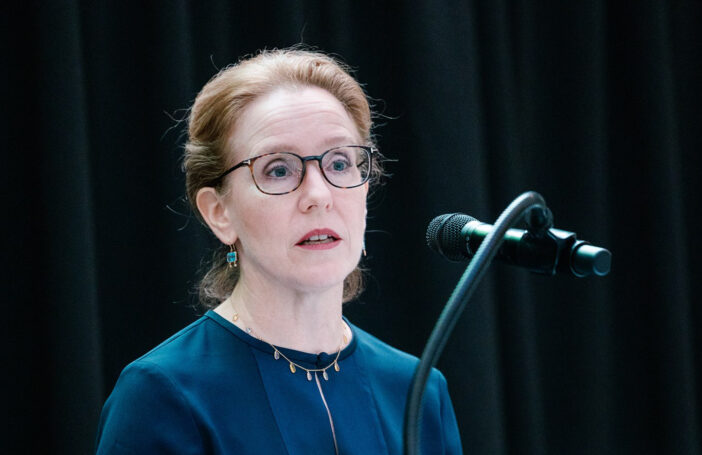With little more than a year to go until the next US presidential election, analysts, policy planners and decision makers around the world have begun considering the potential implications of a second Trump presidency.
While public commentary in Australia and internationally has focused on issues of foreign, defence and security policy, what might be the implications for global aid and development? This blog attempts to explore some of the potential consequences, recognising that the vagaries of the US political, electoral and, perhaps most importantly, legal systems mean that much is still unknowable, let alone predictable.
As noted previously, this discussion is important because although the US is among the least generous donors in terms of its aid-to-income ratio, it is still the world’s largest official country donor in terms of overall aid volume. In 2022, the US provided over US$55 billion in aid, accounting for over a quarter of official development assistance (ODA) reported to the OECD.
While much of this aid explicitly seeks to advance US foreign policy goals, a large proportion of it also finances the provision of global public goods. For example, the US is by far the world’s largest global health donor, spending over US$14 billion in this sector alone in 2021. The US is also among the largest providers of humanitarian aid – in 2023, the US was the largest contributor to both the World Food Programme and the UN Refugee Agency. It is the largest shareholder in the World Bank and the Asian Development Bank (with Japan), and a key donor in some of the world’s poorest and most fragile countries, particularly in Africa, the Middle East and South Asia.
During Trump’s first term (2017-21), the US’s leading global position on aid volume was preserved largely as a result of the successful efforts of Democrats in the Congress and moderate Republicans, both within Congress and Trump’s own cabinet, in resisting the president’s repeated efforts to slash the budgets of USAID and the State Department. As Trump’s first Secretary of Defence, General James Mattis, famously quipped in 2017, “If you don’t fund the State Department fully, then I need to buy more ammunition ultimately.”
However, most analysts believe that Trump’s populist and authoritarian impulses would be much harder to constrain were he to win a second term, particularly in the event that the pro-MAGA (“Make America Great Again”) faction of Republicans secure majorities in both the House and Senate.
In September, the current crop of House Republicans (an uneasy coalition of MAGAs and moderates) sought a 31% cut in Biden’s FY2024 bid for development assistance, a 30% cut in USAID’s operating expenses, a 23% cut to the US Development Finance Corporation, and cuts of 83% and 31% in US contributions to international organisations and international financial institutions, respectively.
In his previous term, Trump drastically reduced US funding for multilateral peacekeeping operations and several specialised UN agencies, including the UN Population Fund (UNFPA), the joint UN program on HIV/AIDS (UNAIDS), the World Health Organization (WHO), and the UN agency for Palestinian refugees (UNWRA). While similar cuts may or may not be pursued in a future under a Trump administration, his previous record and the recent Congressional budget negotiations point to three specific areas that are likely to be targeted if he were to win a second term, whether or not he has a supportive Congress.
The first is aid to Ukraine, which Trump and his loyalists would seek to curtail, even if the war continues into 2025 and beyond. Public polls show that most Trump supporters oppose further aid to Ukraine and Trump himself has been a vocal critic of US support. While the current focus of the pro-MAGA Republicans in Congress has been on reducing US military aid to Kyiv, there is little doubt that US economic and humanitarian aid, which has totalled some US$30 billion since the start of the war, would also be targeted.
Just prior to the budget approval deadline of 30 September, House Republicans successfully demanded that additional aid to Ukraine be excluded from a deal with Democrats designed to temporarily avert a government shutdown. While this hardline position on Ukraine is not shared by all Congressional Republicans, particularly those in the Senate, it would be even harder for Democrats to oppose it if Trump and more of his MAGA allies were to be elected in November 2024.
Trump’s return would also see a rejuvenated assault on programs to advance sexual and reproductive health. Trump would undoubtedly reinstate the so-called “Global Gag Rule”, prohibiting the provision of abortion or any advice relating to abortion services on the part of partners that receive US aid funding – even if it is done with their own funds. For the past several months, pro-Trump Republicans in the Congress have refused to re-authorise the President’s Emergency Plan for AIDS Relief (PEPFAR) – established by Republican President George W. Bush and one of the world’s most successful global health programs – despite the September budget deadline, on the basis of false allegations that it promotes abortion. Programs that they characterise as “woke”, particularly those that focus on LGBTQIA+ populations, have also been attacked by MAGA and other Republicans.
Another area that would be affected by a Trump return is climate aid. Republicans in the current Congress have refused to approve Biden’s repeated requests to increase US global climate assistance and to finance the Green Climate Fund (GCF), a body which the previous Trump administration halted funding to when it withdrew the US from the Paris Agreement in 2017. Any prospect of the US funding the GCF would be off the table should Trump return, and it is likely he would again seek to withdraw the US from the multilateral climate change architecture. Recent high profile US pledges to the Pacific on climate aid would be in jeopardy, as would US support for a “loss and damage” fund.
More generally, a Trump return would likely see a more “transactional” approach in which aid would be subsumed entirely by the US’s China strategy. While competition with China has been a prominent feature of aid policy under Biden, his administration has attempted to run a more nuanced line, also emphasising the importance of aid to helping address global challenges like climate change, and of listening and responding to recipient countries’ own priorities through greater localisation.
There would be little of this under Trump, who would explicitly seek to use aid to extract political and economic concessions, notwithstanding the repeated, high profile failures of this approach during the Cold War. Indeed, even so-called moderate Republican presidential contenders like Nikki Haley have mooted the idea of the US cutting aid to countries that vote against it in the UN. Depending on the composition of the Congress, a re-elected Trump may even act on a legislative push by some in the MAGA wing of the Republican Party to abolish USAID entirely.
In Australia, there has been virtually no public discussion of what a Trump reboot could mean for Australia’s aid objectives. Besides not mentioning China by name, the government’s new international development policy does not contain any discussion of what a major shift on aid on the part of its principal ally might mean for Australia, the region or global development. This is not surprising given the uncertainties and sensitivities involved, but the silence belies the now routine characterisation of development as “at the heart of Australia’s foreign policy”.
There would be many things for Australian foreign policy makers to worry about if a second Trump presidency materialises. Development may be a fair way down the list; although it really shouldn’t be, given the scale of the challenges we face. But, hopefully, somebody in government is thinking about it…




